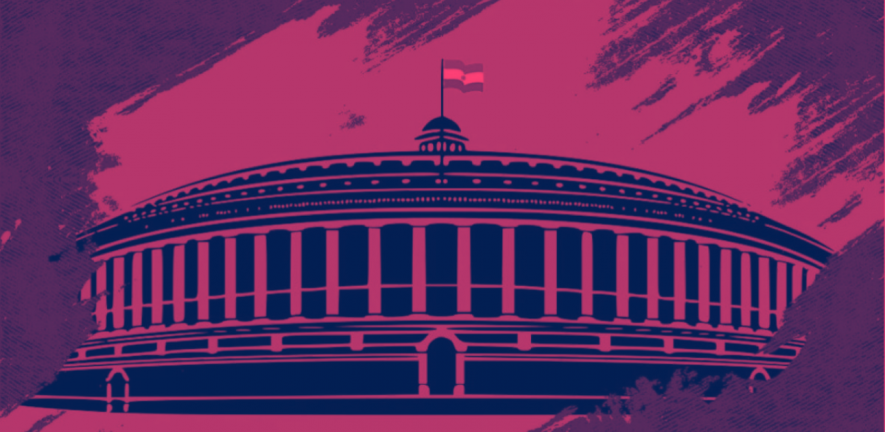Parliament’s Winter Session is Set to Introduce 16 New Bills

With 35 bills pending in Parliament, 16 new bills are listed for introduction, consideration, and passing, whereas seven already introduced bills are listed for consideration and passing.
– –
The Parliament’s winter session of 2022, from December 7 until December 29, is set to hold 17 sittings over 23 days. The Union Government’s agenda for the winter session includes the introduction, consideration, and passing of 16 newly listed bills.
As elaborated below, the bills are grouped according to their subject areas.
Finance/ Corporate Affairs/ Commerce
The Trade Marks (Amendment) Bill, 2022 aims to incorporate aspects of the Madrid Registration System for managing trademarks worldwide, thereby making changes to international registrations under the Trade Marks Act, 1999 as per the Madrid Protocol (technically, the Protocol Relating to the Madrid Agreement Concerning the International Registration of Marks). Additionally, it seeks to amend the procedure regarding show cause, hearing, opposition hearing, and incorporation of electronic communication by the Trade Mark Office.
Stakeholders suspect that the registrations will incorporate the changes recommended by the 161st report of the Parliamentary Standing Committee on Commerce, published in 2021 and the amendments required by the ongoing free trade agreement negotiations with the United Kingdom.
The Geographical Indications of Goods (Registration and Protection) (Amendment) Bill, 2022, falling under the same category, seeks to simplify procedures and increase accessibility for stakeholders. The Geographical Indications of Goods (Registration and Protection) Act was enacted in 1999.
Home Affairs/ Security/ Law/ Strategic Affairs/ Social Justice
The Multi-State Cooperative Societies (Amendment) Bill, 2022 seeks to strengthen governance and transparency, increase accountability, reform the electoral process, improve the monitoring mechanism, and ensure ease of doing business in Multi-State Cooperative Societies. It was introduced in the Lok Sabha on December 7 to amend the Multi-State Cooperative Societies Act, 2002.
Under the new Bill, the Union Government can give directions and supersede any multi-state co-operative society where the government has any shareholding, or has extended any loan, financial assistance or guarantee. Under the Act, this solely applied to multi-state co-operative societies with at least 51 per cent of the Union Government’s shareholding. While under the Act, elections to the board of a multi-state co-operative society are conducted by its existing board, the Bill amends to provide for the Union Government to establish the Co-operative Election Authority to perform functions relating to elections to the board.
As reported by The Hindu, on December 7, the Opposition objected to the passing of the Bill on the grounds that cooperative societies are a state subject in the Seventh Schedule of the Constitution, and the provisions of the Bill are ‘encroaching’ on the rights of the state governments. Concerns were also raised about taking away the autonomy of cooperative societies and putting an additional burden on them.
Under the same category, the Cantonment Bill, 2022 seeks to facilitate ease of living in Cantonments, make their administration more democratic and efficient, and achieve developmental objectives in line with municipalities across the country. The Old Grant (Regulation) Bill, 2022 aims to enhance ease of living while ensuring government rights over land under Governor General Orders; regulate their transfer, sub-division and change of purpose; and delegate powers.
The other amendment bills within this category seek to revise the list of Scheduled Tribes and Scheduled Castes in certain states. The Constitution (Scheduled Tribes) Order (Second Amendment) Bill, 2022 aims to revise the list of Scheduled Tribes in Tamil Nadu, the Constitution (Scheduled Tribes) Order (Third Amendment) Bill, 2022 seeks to revise the list of Scheduled Tribes in Himachal Pradesh, the Constitution (Scheduled Tribes) Order (Fourth Amendment) Bill, 2022 seeks to revise the list of Scheduled Tribes in Karnataka, and the Constitution (Scheduled Tribes) Order (Fifth Amendment) Bill, 2022 has the objective of revising the list of Scheduled Tribes in Chhattisgarh.
The Repealing and Amending Bill, 2022 aims to repeal redundant and obsolete laws.
Health and education
The National Dental Commission Bill, 2022 aims to repeal the Dentists Act, 1948 and set up a National Dental Commission (‘NDC’) by restructuring the Dental Commission of India (‘DCI’). As reported by The Economic Times, while the NDC is hailed for its potential to be effective, efficient and considered a needed move to prioritise the dental profession, it is also facing criticism for not being as democratic as the DCI. Concerns are also being raised about the government’s failure to address corruption and probe malpractice within the DCI.
Further, the National Nursing and Midwifery Commission Bill, 2022 will be introduced to repeal the Indian Nursing Council Act, 1947, and set up a National Nursing and Midwifery Commission. The Bill is considered by stakeholders as a means to ensure the growth and autonomy of the nursery and midwifery profession in India.
The Bill has been praised for recognising midwifery as a distinct discipline, which has the potential for providing an educated, regulated, and licensed cadre of midwives to increase the quality of care. However, a more mandated representation of midwifery experts to the Commission, and legislative provisions for independent midwifery practice and protection of the midwifery practitioner title require consideration.
Concerning nurses, the establishment and expansion of advanced practice nurse programmes are hailed. Some significant criticisms of the Bill, however, include a lack of provisions for the Commission to regulate nursing service conditions, and the absence of provisions to ensure nurses’ continued competence to practice.
Environment/Water Resources
Under this category, the Forest (Conservation) Amendment Bill, 2022 aims to amend the Forest (Conservation) Act, 1980, and promote plantation in non-forest areas and conserve the forests. Notably, the recently introduced Forest (Conservation) Rules, 2022 were widely criticised due to the threat they pose to the removal of participation of forest-dwelling communities in the process of land clearance by allowing private developers to clear forest land for compensatory afforestation and development projects without the prior consent of gram sabhas.
Further, the Coastal Aquaculture Authority (Amendment) Bill, 2022 seeks the amendment to the Coastal Aquaculture Authority Act, 2005 with the motive to decriminalise offences under the Act, remove regulatory gaps, and reduce the regulatory compliance burden therein. The Bill proposes to exempt shrimp hatcheries from the application of the pertinent Coastal Regulation Zone (‘CRZ’) notification.
The Bill aims to lift restrictions for shrimp hatcheries by amending Sections 13(8) Act (that prohibits coastal aquaculture within the no-development zone), and 27 of the 2005 Act (to exempt the entire coastal aquaculture from the purview of the CRZ notification). Concerns have, however, been raised about whether the Bill can override the CRZ notification.
Additionally, the North East Water Management Authority Bill, 2022 creates the North East Water Management Authority (‘NEWMA’), which will work as an Integrated Water Resources and Basin Management Organisation for the Brahmaputra and Barak basin in the North Eastern region. It seeks to repeal the Brahmaputra Board Act, 1980, and, along with it, replace the existing statutory body of the Brahmaputra Board with NEWMA. With NEWMA, the Bill aims to develop water bodies and river-based projects in the north eastern region and ensure the conservation of natural resources.
Culture
The Kalakshetra Foundation (Amendment) Bill, 2022 seeks to amend the Kalakshetra Foundation Act, 1993 to empower the Kalkshetra Foundation to award certificates, diplomas, graduate, post-graduate and doctoral degrees, and conduct research in dance, theatre, music and other forms of art.
Bills for consideration and passing
Out of the total 35 Bills pending in Parliament, seven Bills are listed for consideration and passing, namely the Anti-Maritime Piracy Bill, 2019, the Mediation Bill, 2021, the New Delhi International Arbitration Centre (Amendment) Bill, 2022, the Constitution (Scheduled Castes and Scheduled Tribes) Orders (Second Amendment) Bill, 2022, the Biological Diversity (Amendment) Bill, 2021, the Wild Life (Protection) Amendment Bill, 2021, and the Energy Conservation (Amendment) Bill, 2022.
Sarah Thanawala is a staff writer at The Leaflet
Get the latest reports & analysis with people's perspective on Protests, movements & deep analytical videos, discussions of the current affairs in your Telegram app. Subscribe to NewsClick's Telegram channel & get Real-Time updates on stories, as they get published on our website.























